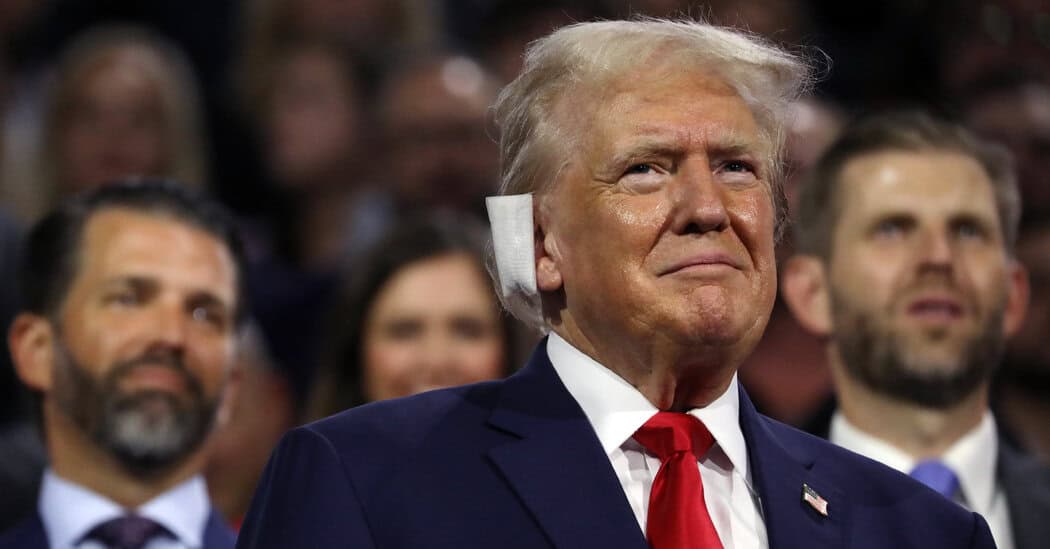The Secret of Trump’s Resurrection

In November 2022, after the Republicans’ lackluster showing in the midterms, I wrote a column titled “Donald Trump Is Finally Finished.” I keep a printed copy on my desk as a humbling reminder of how wrong I can be.
How did Trump go from a disgraced has-been — even Fox News’s Laura Ingraham implied he was putting his “own grudges ahead of what’s good for the country” — to the man of destiny he had become even before he dodged that bullet on Saturday?
A simple explanation goes something like this: The G.O.P. ceased to be a normal political party in 2016 and became a cult of personality, less interested in winning elections than in burnishing the savior-victim myth of its charismatic leader. As a cult, the party could never realistically allow any other Republican to successfully challenge Trump for the nomination. And as a nominee, Trump would only gain strength once the extent of President Biden’s mental decline became obvious.
But this analysis, true to a point, falls short in at least three respects. It doesn’t give Trump the political credit he deserves. It fails to reckon with the Biden administration’s political blunders. And it reduces the Democrats’ problem to a Biden problem. Their problem is bigger than that.
First, Trump. Just as Barack Obama knew that he stood for hope, Trump knows that he stands for defiance. Defiance of what, or whom? Of the gatekeepers to cultural respectability in today’s America. And who, in the minds of Trump supporters, are they?
They are the reporters who said it was a “conspiracy theory” to suggest Covid emerged from a Chinese lab. Or the academic deans who insist every job applicant write D.E.I. statements and refuse to hire those who criticize them. Or the do-gooders who charge that Americans who want better control of the southern border are motivated by racism. Or the pundits who say, as one NBC contributor put it in 2016, that “100 percent of Trump voters are deplorable.” Or the journalists who claimed that “inflation is good for you.”